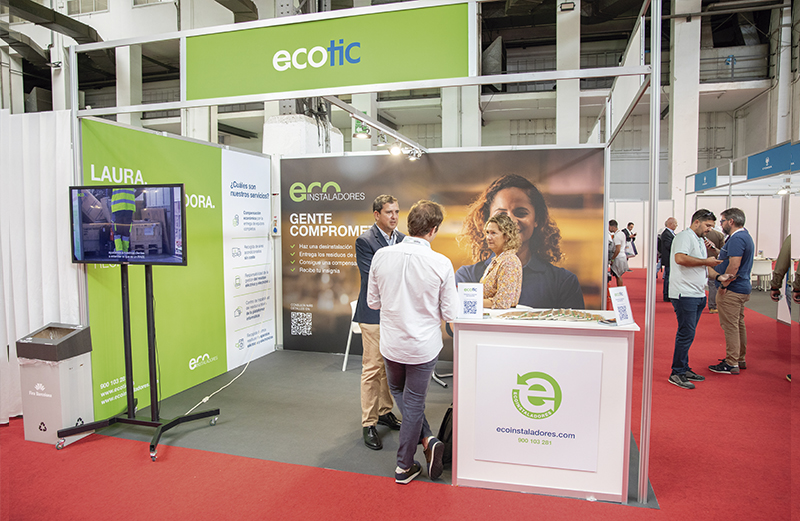Environmental awareness and sustainability are increasingly becoming priorities for people and the sector of electrical and electronic waste management, which is essential for building a greener and more responsible future.
With a growing dependence on technology in all spheres of modern life, the sector of electrical and electronic equipment is experiencing constant growth. However, this growth also brings significant challenges in terms of waste management and resource conservation.
The role of installers has become essential in this context. As key players in the supply chain, professionals have the opportunity to influence the choice and proper management of equipment, thereby contributing to reducing environmental impact and promoting the circular economy. From implementing efficient installation practices to promoting the reuse and recycling of obsolete equipment, committed installers play a crucial role in building a more sustainable future.
One of the most notable aspects of the Ecoinstaladores programme is its comprehensive approach to the life cycle of electronic devices. From design to dismantling, Ecoinstaladores ensure that products are managed responsibly, thereby minimising their environmental impact. Through rigorous training and the use of advanced technologies, these professionals become experts in dismantling and recycling electronic components, ensuring proper waste management and their reintegration into the value chain.
The importance of this initiative lies in its ability to raise awareness among professionals about the need for proper recycling of WEEE. Often, unused electronic devices end up in landfills or stored in our homes, resulting in a significant environmental burden. This programme strives to change this reality by educating professionals on the importance of properly separating and recycling WEEE. Additionally, it fosters collaboration with various stakeholders, such as manufacturers, distributors and local authorities, to establish efficient collection and recycling channels.
Sustainable uninstallation has not only an environmental impact but also social and economic effects. By ensuring proper handling of WEEE, the risks associated with soil and water contamination, as well as the release of toxic substances, are reduced. Moreover, recycling electronic components allows for the recovery of valuable materials, thereby reducing dependence on limited natural resources. This circular economy also creates jobs and promotes the development of a sustainable recycling industry.





